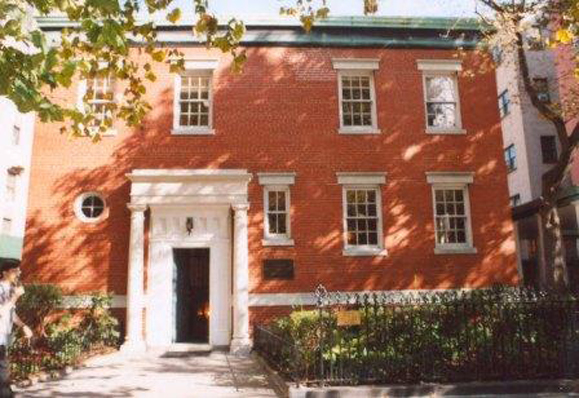The third annual Who Do We Think We Are? day-long program, presented and organized by Glucksman Ireland House at New York University, took place on Saturday, April 21. This year, the theme was Economics, Family-Style, exploring the Irish and Irish-American family. Throughout the day, prominent writers, artists and scholars explored and discussed how finances influenced family decisions regarding emigration, marriage, and property, and how these in turn affected the wider community.
The first session, titled Sharing Communities: Family Life Across the Atlantic, was presented by Miriam Nyhan and Linda Dowling Almeida, who run the Glucksman Ireland House Oral History Project. Evocative audio clips were shared, and real stories hit a note with everyone, evinced by the many scuffles in bags for tissues as memories came flooding back. Poverty was a major theme throughout, but always with the caveat “we were poor but we didn’t know we were poor.” Other issues that have divided families then and now were raised: the family farm, the inheritance, mothers and daughters- in-law, mothers and sons, the “other” woman invading the family home. Happy memories were also discussed; particularly poignant was the description of the ubiquitous American parcel that immigrants in the U.S. would send to their families in Ireland: “an invitation to the exotic and mystery of the other world.”
Mary Higgins Clark, the pretty and petite Irish American known worldwide for her suspense novels, gave the keynote address. Despite fame and fortune, Clark remains grounded, and her Irish upbringing shines through constantly. A central theme in her presentation was faith, optimism and triumph over tragedy, instilled in her by her Irish parents. She talked about the effects of poverty and death, living as she did through the Great Depression. She recalled wonderful memories of growing up in the beautiful “countryside,” as the Bronx was then known. Her extended family would sit around the table and the teapot, over which joys were shared and sorrows were split. She ended her eloquent and inspiring speech with the quote “unless you are a storyteller, you are not a writer.”
Prof. Brendan Mac Suibhne of Centenary College and Prof. Kerby Miller of University of Missouri presented the third session, Wealth, Poverty and Emigration. Brendan discussed the impact of the Great Famine and its legacy on his native town land in Donegal. Kerby explored the complexities and perplexities that historians encounter, using the example of Edmund Ronayne (1832-1911), who was recognized as a Fenian after his death, even though his life’s journey took him from a devout Irish-Catholic upbringing in famine-struck Ireland to the U.S., where he became an avid Freemason, then turned to Presbyterianism and ran various anti-Freemason rallies, and ended up an impoverished man.
In the fourth session, Financing Futures: Sibling Support and Maternal Models, Professor Maureen Murphy of Hofstra University discussed how chain migration to the US was financed by women, including nuns, while Prof. Janet Nolan of Loyola University, Chicago, looked at upward mobility from mothers to daughters in America. Bruce Morrison, former congressman from Connecticut, immigration lawyer, and lobbyist, then addressed the issue of modern-day immigration.
Noel Kilkenny, Consul General of Ireland, New York, made the closing remarks on what was a thoroughly enjoyable and interesting day.


Leave a Reply